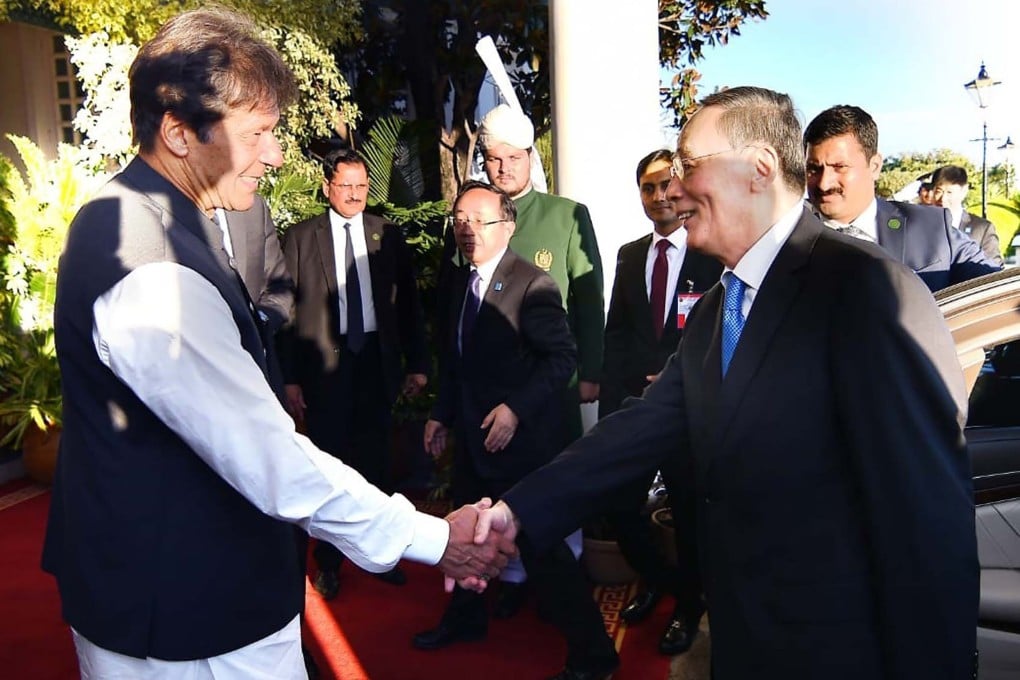China seeks security guarantees for Pakistan belt and road projects after terror attacks
- Chinese Vice-President Wang Qishan raises concerns with Prime Minister Imran Khan
- Insurgents appeared to target Chinese interests

Chinese Vice-President Wang Qishan has urged Pakistan to bolster security for Beijing’s major development drive in the country, following the deadly terror attacks two weeks ago which appeared to target Chinese projects, including the strategic deep-sea port at Gwadar.
Wang met Pakistan’s Prime Minister Imran Khan during a three-day state visit to Islamabad, which concluded on Tuesday, and raised concerns for the China-Pakistan Economic Corridor (CPEC), including the need for “effective measures to provide security guarantees” for the US$62 billion network of roads, railways, and pipelines in Pakistan.
Khan said during the meetings that Pakistan had established a special committee dedicated to ensuring the safety of Chinese personnel in the country, according to a report from China’s Xinhua state news agency.
Officials and businesspeople in Pakistan – which touts its “all-weather” strategic partnership with China – have stressed the need to address security concerns over projects under CPEC, which is regarded as a key pillar for Beijing’s broader Belt and Road Initiative across Asia, Africa, and Europe.
Security concerns were heightened after insurgent gunmen stormed a five-star hotel in Gwadar in early May, not long after an April attack on a bus travelling from Gwadar that killed 14, including Pakistani military personnel. The Baloch Liberation Army, which has threatened further violence against Chinese interests, has claimed responsibility for both attacks.
While in Islamabad, Wang said the two countries would work towards the next phase of high-quality development of the corridor and discuss issues including third-party cooperation, according to Xinhua.